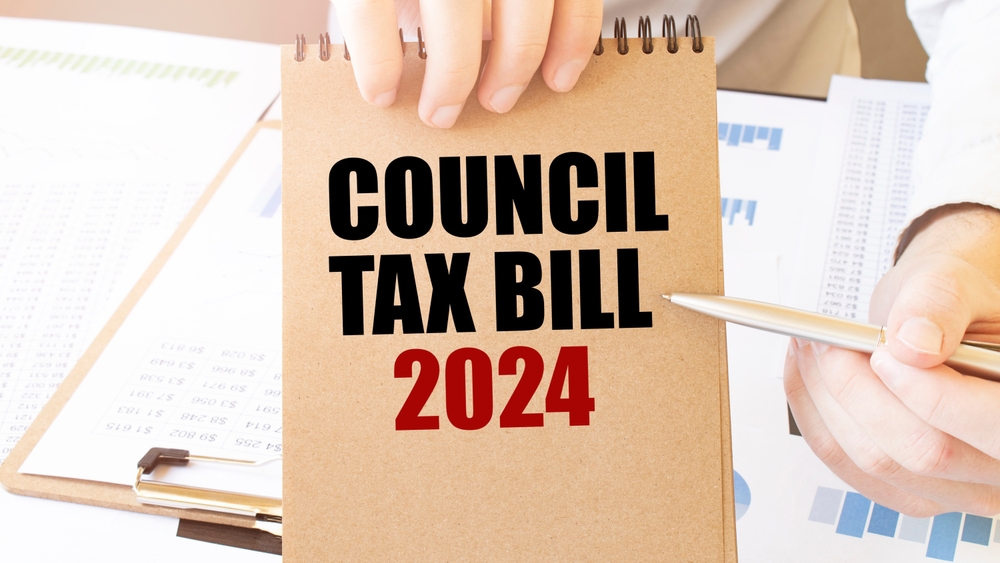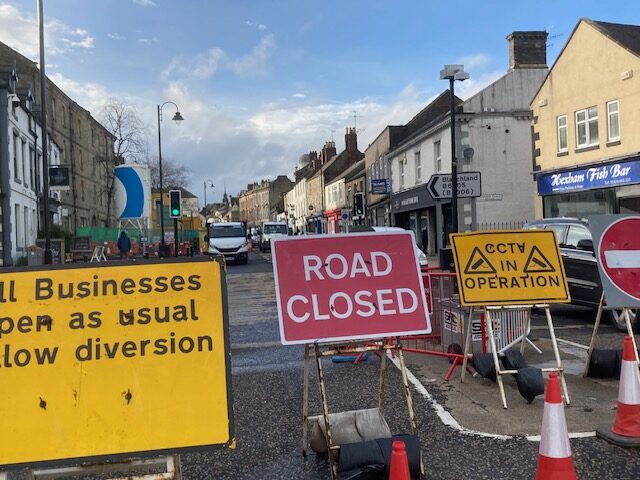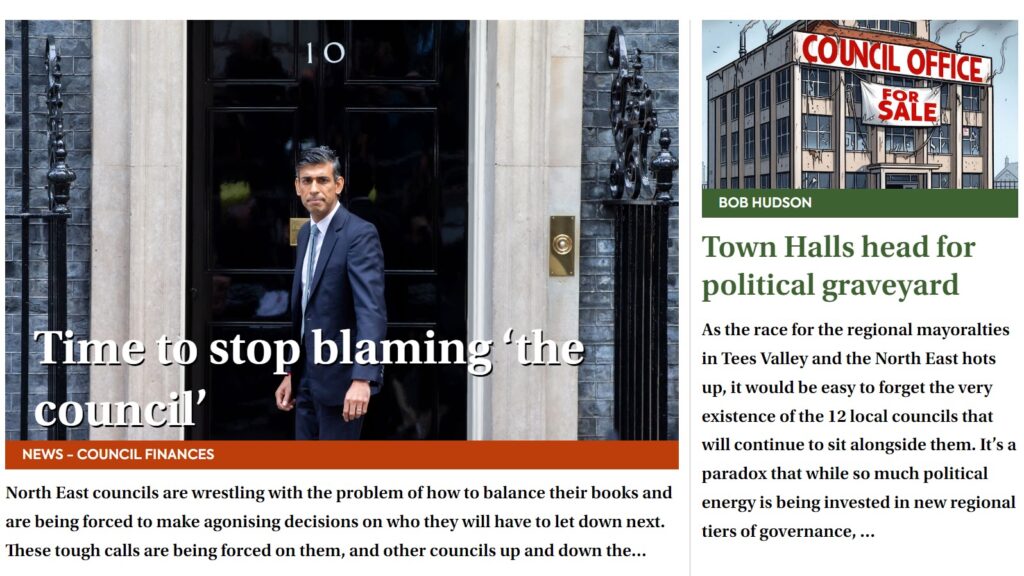
Council tax bills are arriving through letterboxes across the region while services that we used to take for granted are under growing threat.
Most of us are being asked to pay an extra 5% to our local authority, the maximum permitted by central government, but there is less money to spend on libraries, road repairs, street lighting, and our open green spaces. Why? Because councils are legally bound to provide adult social care and services for vulnerable children, and those costs are rocketing.
It doesn’t feel like we are being levelled-up.
There is money out there — including £10.47bn in three Levelling Up funding pots alone — but it is time-consuming and expensive to apply for, and difficult to get.
One thing the Government could do is stop the Hunger Games-style bidding wars that pits council against council and charity against charity and start giving that money to those who need it, not the ones with the best bid writers.
That wouldn’t cost them any more money — and it would save considerable time and effort in judging the ‘winners’ and the ‘losers’.
In this edition we report on the efforts of one man trying to breathe new life into a former mining village. It is a story of hope and frustration.
In The past present and future of Sacriston, our contributor Jacqui Hodgson writes: “Even Nathan’s infectious optimism flags when he talks about the Herculean task of raising money to support his work He rails against the form-filling which often sets charity against charity to compete for small amounts of money.”

And today in our Civilised Society section, we publish a report from academics in Birmingham, Levelling up is ‘not working as promised’, which highlights that this competitive model is predicated on short-term, project-based funding pots when their research shows that councils need long-term funding to best respond to the needs of their constituents.
In 2022 the Department for Levelling Up, Housing and Communities (DLUHC) published a white paper which said: “If underperforming places were levelled up towards the UK average, unlocking their potential, this could boost aggregate UK GDP by tens of billions of pounds each year.”
The academics say: “The disconnect between this prosperity-led rhetoric on local authority funding and the reality could not be starker. Since 2010-11, local authorities have experienced a 27% real-terms cut in core spending power due to reduced central government funding.”
- Read more: Levelling Up: the case for the prosecution
- Read more: Who’s looking after our loved ones?
And they point out that councils no longer have access to European funds while the government funding that has replaced it is less generous.
In the same section, Henri Murison, chief executive of the Northern Powerhouse Partnership, writes Levelling Up: the case for the prosecution.
The verdict is guilty, of course. The Public Accounts Committee published a report last week that there is “no compelling evidence” that levelling up has achieved anything and that only £1.24bn of the £10.47bn promised to tackle regional inequality had been spent.
To be fair, Tees Valley and the incoming North East Mayoral Combined Authority have done well from their respective devolution deals. But it is councils who are responsible for taking away our rubbish, keeping our libraries open and repairing our roads.

Talking of which, the annual ALARM (Annual Local Authority Road Maintenance) survey report was published this week, highlighting the scale of the challenges facing local authorities.
It said two thirds of local roads in the North East could fail in the next 15 years as the amount needed to fix the backlog of repairs has reached a record high of £820m.
Every motorist and cyclist hates potholes but, as we said in our second edition, it’s Time to stop blaming ‘the council’.
Compared to many other countries, councils in England have fewer powers to raise revenue.
And an analysis of their budgets by Pixel Financial Management for the County Councils Network (CNN) found that social care and children’s services account for an average of 65% of local authority spending, up from 57% in 2014.

John Pearce, president of the Association of Directors of Children’s Services, told The Times: “Local authorities can pay tens of thousands of pounds a week for individual placements for the children in their care who have the most complex needs, while providers can pick and choose which children to accept, and at what cost due to the high levels of demand.
“The increasingly unmanageable costs of children’s social care placements, and the significant shortfall in suitable homes in the right places, has led to a crisis in the sector that needs a national response.”
The QT has been highlighting the crisis in social care through our series Do We Care? And this week we spoke to a NHS healthcare assistant who was a homecarer for her father.
In the article Who’s looking after our loved ones, she tells of a disjointed system that leaves families facing financial difficulties.

She told us: “I fear for my own future; I am worried about what is going to happen to me if I need care. I’ve seen the best of what can be done for people, but I’ve also seen the worst.
“Social care as it is at the moment, is a broken system. From where I’m sitting, there has been a break somewhere. I don’t know where, but having experienced, and navigated, and tried to sort my mum and dad’s care out, it’s just collapsing around us.”
Earlier this year the DLUHC began a pilot programme to test how central government could distribute funding to local authorities in a simplified, streamlined way, in order to give them greater flexibility. That can’t happen fast enough.
And, in the meantime, there should be a swift end to the competitive bidding processes for central funds and an urgent review of social care so that the responsibility of looking after our elderly and most vulnerable does not rest on council shoulders.











